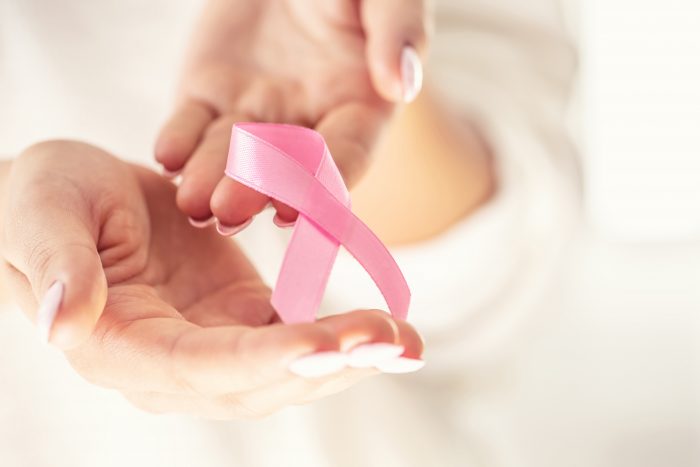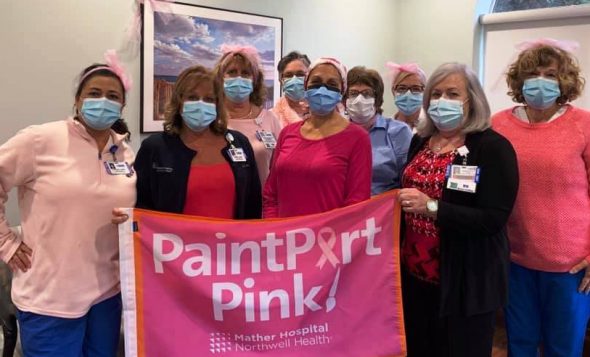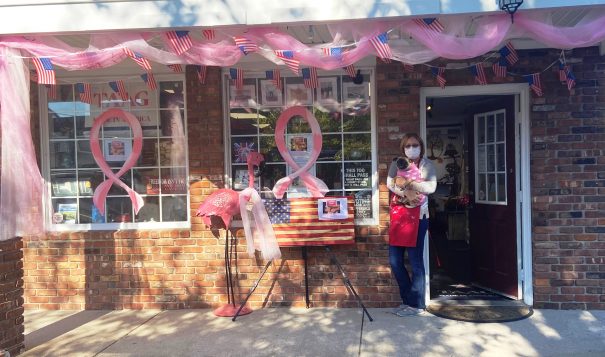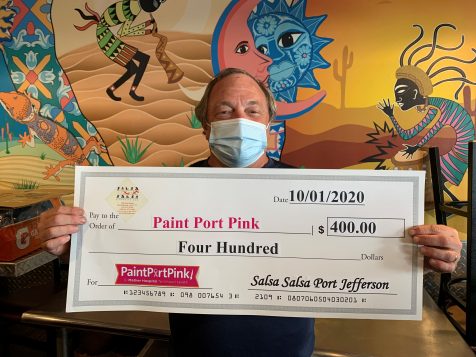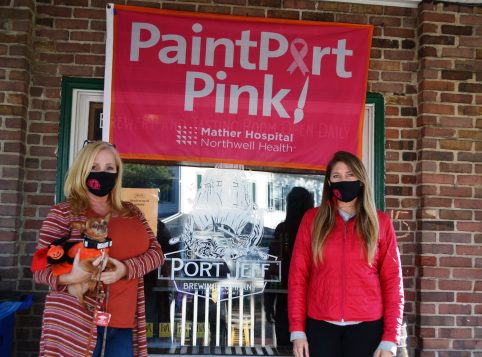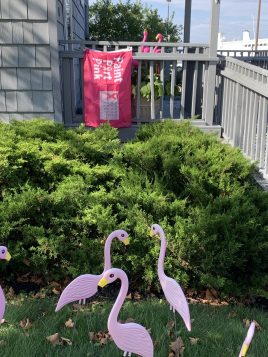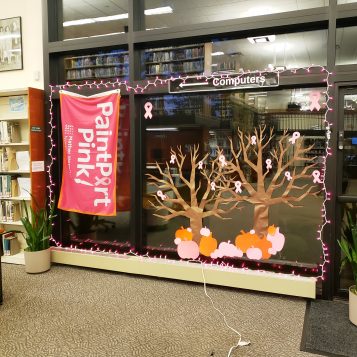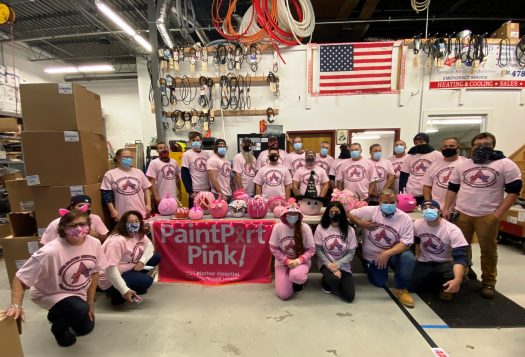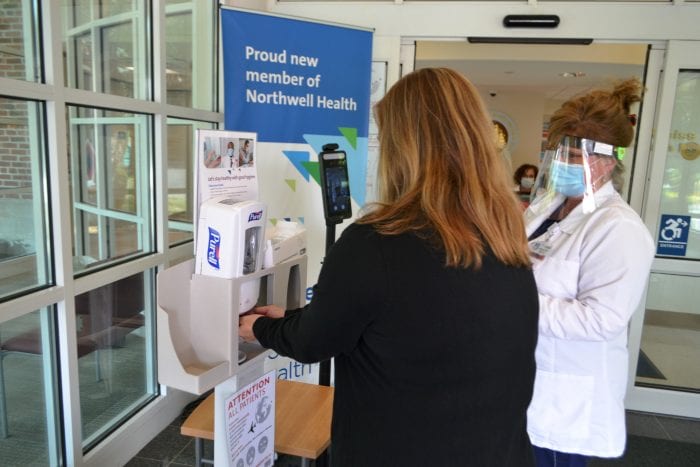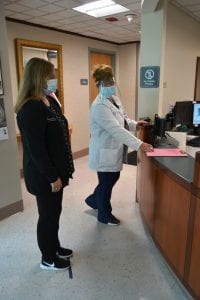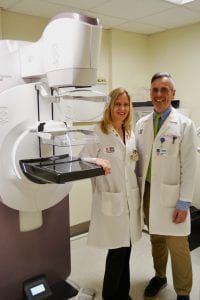New research on bisphosphonates helps clarify their role in prevention
By David Dunaief, M.D.

Breast cancer is the most common cancer diagnosed in U.S. women. Experts estimate that 30 percent of 2022 cancer diagnoses in women will be breast cancer (1). Only 15 percent of cases occur in those who have a family history of the disease, and 85 percent of new diagnoses will be invasive breast cancer.
A primary objective of raising awareness during October is to promote screening for early detection. Screening is crucial, but it is not prevention, which is just as important. Prevention strategies should include primary prevention, preventing the disease from occurring by lowering your risk, and secondary prevention, preventing breast cancer recurrence.
Here, we will discuss current screening recommendations, along with tools to lower your risk.
What are current screening recommendations?
There is some variation in screening guidelines; experts don’t agree on age and frequency. The U.S. Preventive Services Task Force currently recommends mammograms every other year, from age 50 through age 74, with the option of beginning as early as age 40 for those with significant risk (2). These 2016 guidelines are currently undergoing a review and are pending publication.
The American College of Obstetricians and Gynecologists encourages a process of shared decision-making between patient and physician to determine age and frequency of exams, including whether to begin exams before age 50 or to continue after age 75 (3). Generally, it recommends beginning annual or biennial mammograms starting no later than 50 and continuing until age 75.
The American Cancer Society’s physician guidelines are to offer a mammogram beginning at age 40 and recommend annual exams from 45 to 54, with biennial exams after 55 until life expectancy is less than 10 years (4).
It is important to consult with your physician to identify your risk profile and plan or revise your regular screening schedule accordingly.
When do bisphosphonates help?
Bisphosphonates, which include Fosamax (alendronate), Zometa (zoledronic acid) and Boniva (ibandronate), are used to treat osteoporosis. Do they have a role in breast cancer risk prevention? The short answer: it may help prevent recurrence but doesn’t appear to provide primary protective benefits.
In a meta-analysis involving two randomized controlled trials (RCTs), FIT and HORIZON-PFT, results showed no benefit from the use of bisphosphonates in reducing breast cancer risk (5). The study population involved 14,000 postmenopausal women from ages 55 to 89 women who had osteoporosis, but who did not have a personal history of breast cancer. In other words, bisphosphonates were being used for primary prevention.
However, it does appear that bisphosphonates have a role in preventing breast cancer recurrence. The recent SUCCESS A phase 3 trial considered the optimal time for treatment. Findings published in 2021 indicate that two years of treatment for patients with high-risk early breast cancer reduced recurrence risk as much as five years of treatment (6). This could alter the current paradigm of 3-to-five years of treatment to prevent recurrence of certain types of breast cancer, reducing incidences of troublesome side effects.
A Lancet metanalysis focused on breast cancer recurrence in distant locations, including bone, and survival outcomes did find benefits for postmenopausal women (7). A good synopsis of the research can be found at cancer.org.
What’s the role of exercise?
We know exercise is important in diseases and breast cancer is no exception. In an observational trial, exercise reduced breast cancer risk in postmenopausal women significantly (8). These women exercised moderately; they walked four hours a week over a four-year period. If they exercised previously, five to nine years ago, but not recently, no benefit was seen. The researchers stressed that it is never too late to begin exercise. Only about one-third of women get the recommended level of exercise every week: 30 minutes for five days a week. Once diagnosed with breast cancer, women tend to exercise less, not more. We need to expend as much energy and resources emphasizing exercise for prevention as we do screenings.
What about soy?
Contrary to popular belief, soy may be beneficial in reducing breast cancer risk. In a meta-analysis, those who consumed more soy saw a significant reduction in breast cancer compared to those who consumed less (9). There was a dose-response curve among three groups: high intake of >20 mg per day, moderate intake of 10 mg and low intake of <5 mg. Those in the highest group had a 29 percent reduced risk, and those in the moderate group had a 12 percent reduced risk when compared to those who consumed the least. In addition, higher soy intake has been associated with reduced recurrence and increased survival for those previously diagnosed with breast cancer (10). The benefit from soy is thought to come from isoflavones, plant-rich nutrients.
Hooray for Breast Cancer Awareness Month stressing the importance of mammography and breast self-exams. However, we need to give significantly more attention to prevention of breast cancer and its recurrence. Through potentially more soy intake, as well as a Mediterranean diet and modest exercise, we may be able to accelerate the trend toward a lower breast cancer incidence.
References:
(1) breastcancer.org. (2) uspreventiveservicestaskforce.org. (3) acog.org. (4) cancer.org. (5) JAMA Intern Med. 2014;174(10):1550-1557. (6) JAMA Oncol. 2021;7(8):1149–1157. (7) Lancet. 2015 Jul 23. (8) Cancer Epidemiol Biomarkers Prev. 2014 Sep;23(9):1893-902. (9) Br J Cancer. 2008; 98:9-14. (10) JAMA. 2009 Dec 9; 302(22): 2437–2443.
Dr. David Dunaief is a speaker, author and local lifestyle medicine physician focusing on the integration of medicine, nutrition, fitness and stress management. For further information, visit www.medicalcompassmd.com.


